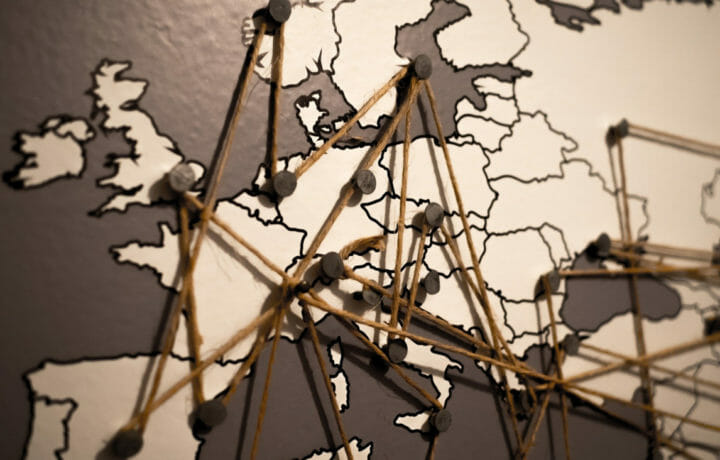Mostly omitted in the American Press, there is significant dismay in Europe over the U.S. troop withdrawal from Afghanistan. European countries had no option but to pull out of Afghanistan, despite the desire for Western troops to remain and suppress the Taliban. NATO allies were dependent on U.S. logistics and aerial support for their military action in Afghanistan. During the fall of Kabul, it became apparent most countries were reliant on the U.S. for evacuation of their military and workers. Senior European Union (EU) officials say the collapse of Afghanistan’s government, the Taliban’s takeover, and the rush to evacuate European citizens and Afghan employees, highlighted Europe’s need for its own rapid-reaction military force.
a common EU defense
Currently, there is no EU army, and defense remains exclusively a matter for member states. Since 2016, there has been discussions within the EU, but no significant tangible action. In 2017, French President Emmanuel Macron called for a joint European military project. That same year, a special Eurobarometer on security and defense, where three quarters (75%) of Europeans polled demonstrated a desire for guaranteed security and a common EU defense. A year later, the majority (55%) were in favor of creating an EU army.
German chancellor Angela Merkel said “We ought to work on the vision of one day establishing a proper European army” in her address to the European Parliament in November 2018. These thoughts and desires initialized a European Defense Fund (EDF); the first time the EU budget was used to co-fund defense cooperation. In April 2021, Members of the European Parliament (MEP) proposed a €7.9 billion EDF budget for research, joint development, and acquisition of defense equipment and technology. Regardless, these initial actions were too late to make a difference last month.
Kabul Renews the EU Defense Calls
Since the fall of Kabul, there are renewed calls for an EU military force, boosting the desire for defense cooperation. Some proponents of a “strategic autonomy” say the events should serve as a wake-up call. Other members do not see a threat and are content to remain junior partners to the U.S. and its military capability.
Earlier this month, European Council President Charles Michel stated, “In my view, we do not need another such geopolitical event to grasp that the EU must strive for greater decision-making autonomy and greater capacity for action in the world. As a global economic and democratic power, can Europe be content with a situation where we are unable to ensure, unassisted, the evacuation of our citizens and those under threat because they have helped us?”
Early in September, the Washington Post reported European leaders believed the pull out left them no choice but to cut short their evacuations, leaving thousands of their citizens and Afghan allies behind. On September 9, European Union foreign policy chief Josep Borrell stated, “Afghanistan has shown that the deficiencies in our strategic autonomy comes with a price and that the only way forward is to combine our forces and strengthen not only our capacity, but also our will to act.” One day earlier in a New York Times editorial, Borrell called reliance on the U.S. during the Afghanistan events a “debacle” and a “wake-up call” for Europe. Seemingly clueless, two days before the fall of Kabul, Borrell had credulously called upon on the Taliban to “immediately resume substantive, regular, and structured talks,” and agree to a cease-fire.
Changing Opinions
Deutsche Welle (DW) reported last week the EU governments’ differences have thus far outweighed their discontent about a collaborative military effort, but the “feeling of shame and frustration over Afghanistan has reignited the desire for more self-sufficiency.” There is an EU concept that has been around for a few years which includes an “initial entry force” of approximately 5,000 personnel. During the past few weeks, EU leadership now fully understands the usefulness of such a force.
Discussions of having Europe take a bigger bite out of the apple are mostly welcome from the American point of view. However, divergent thought continues in Europe. German Defense Minister Annegret Kramp-Karrenbauer last November stated, “Europeans will not be able to replace America’s crucial role as a security provider” and that “illusions of European strategic autonomy must come to an end.” Last week, a surprising reversal was provided by the German Defense Minister regarding a rapid reaction force. In a tweet, Kramp-Karrnbauer stated, “coalitions of the willing could act [on an EU Force] after a joint decision of all EU members”. This may prove challenging in the current bureaucratic environment of the EU Parliament.




